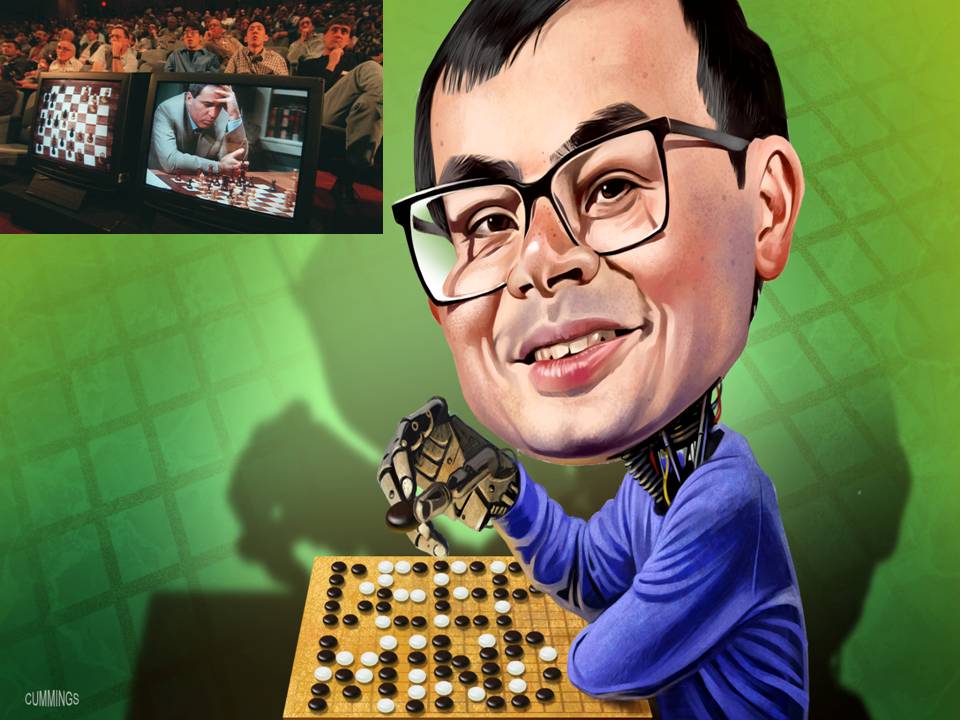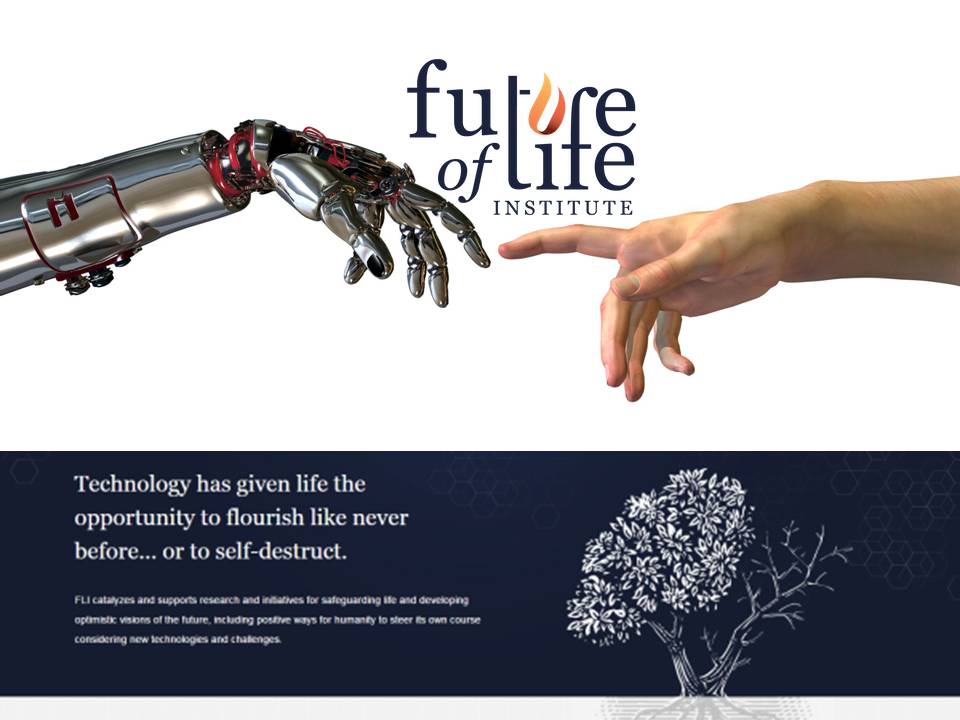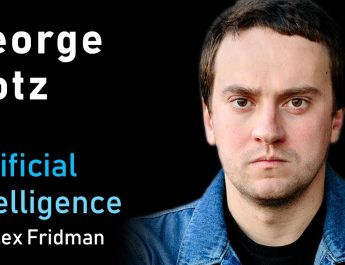Garry Kasparov and DeepMind’s CEO Demis Hassabis discuss Garry’s new book “Deep Thinking: Where Machine Intelligence Ends and Human Creativity Begins ”, his chess match with IBM Deep Blue and his thoughts on the future of AI in the world of chess. Event moderated by Demis Hassabis, CEO, DeepMind of Google.
In May 1997, the world watched as Garry Kasparov, the greatest chess player in the world, was defeated for the first time by the IBM supercomputer Deep Blue. It was a watershed moment in the history of technology: machine intelligence had arrived at the point where it could best human intellect.
It wasn’t a coincidence that Kasparov became the symbol of man’s fight against the machines. Chess has long been the fulcrum in development of machine intelligence; the hoax automaton ‘The Turk’ in the 18th century and Alan Turing’s first chess program in 1952 were two early examples of the quest for machines to think like humans — a talent we measured by their ability to beat their creators at chess. As the pre-eminent chessmaster of the 80s and 90s, it was Kasparov’s blessing and his curse to play against each generation’s strongest computer champions, contributing to their development and advancing the field.
Like all passionate competitors, Kasparov has taken his defeat and learned from it. He has devoted much energy to devising ways in which humans can partner with machines in order to produce results better than either can achieve alone. During the twenty years since playing Deep Blue, he’s played both with and against machines, learning a great deal about our vital relationship with our most remarkable creations. Ultimately, he’s become convinced that by embracing the competition between human and machine intelligence, we can spend less time worrying about being replaced and more thinking of new challenges to conquer.
In this breakthrough book, Kasparov tells his side of the story of Deep Blue for the first time — what it was like to strategize against an implacable, untiring opponent — the mistakes he made and the reasons the odds were against him. But more than that, he tells his story of AI more generally, and how he’s evolved to embrace it, taking part in an urgent debate with philosophers worried about human values, programmers creating self-learning neural networks, and engineers of cutting edge robotics.

Demis Hassabis
“It’s a really special privilege and honor for me actually to talk to Garry Kasparov. In my humble opinion, the greatest chess player of all time and I’ve really enjoyed his book which I reviewed recently and I was impressed with Gary’s understanding of artificial intelligence and the latest advances in that so you know it’s going to be great to talk about that as well as chess today..”
Garry Kasparov
“Thank you very much for your review and over the album protection against all the tech guys that try to criticize me for not being an expert.”
Demis Hassabis
“I’m glad if I can be of use. Before we get talking about Deep Blue Match and I’m sure everyone’s going to want to hear about your insights on that and also machine learning more generally and I wanted to begin by asking you about growing up as a chess champion in Soviet Union. Did you always want to be a chess player world champion yet did you consider anything else or were you from a very young age decide that this was your path?”
Garry Kasparov
“I learned how to play chess when I was five or six. Sorry I couldn’t give you an exact moment. Nobody was there to tweet about this. This was late 68 literally 69 watching my parents trying to solve chess problem and them I love the game at first sight and then ever since and I’m still all over the game and there I could feel that was a match made in heaven and everybody around also could see that chess was a perfect fit for my mind skills.”
Demis Hassabis
“You talk about in the book about chess and forming all of your thinking and the rest of your life. What do you mean by that? What skills can you see yourself using in the rest of your life at chess?”
Garry Kasparov
“Naturally if you are engaged in competitive sport at such an early age. You see many things just as a reflection of your chess games, your engagement. Because you have to play up to win. It means you have to change certain habits and certain customs and what was important for me that’s what I learned from my mother is that my game was not just about win it was also about making a difference and that’s what helped me to make a transition later on in my life from playing chess being number one chess player for 20 years two other things that I’m doing now not pretending that I could be number one and repeat my outstanding achievements in the game of chess but still recognizing that I’m quite useful. Because I’m trying to bring my chess experience, my what I learned from the game of chess, my analytical skills to make the difference elsewhere.”
Demis Hassabis
“We should talk about obviously the heart of your book which is that the Deep Blue Match and you know I was fascinated to see your take on having going through the AlphaGo matches ourselves on the other side you’ll take on it from from the player’s perspective.”
Garry Kasparov
“It’s an interesting story. Because when we played our first match, I always want to remind people of the two matches and I won the first one:)”
Demis Hassabis
“Exactly:)”
Garry Kasparov
“The first match in Philadelphia. It was just organized as quite a low-level event. The corporation was not even involved. It was ACM behind it and the team always wanted to challenge me. I have an experience of playing against them in 1989 when they had a Deep Blue the prototype from Carnegie Mellon that they brought to IBM has turned into a people project and everything has changed after game one. By the way if we are talking about a watershed moment that was in February 1996 in Philadelphia when I lost game one of that match.”
“Because the rest is you may argue matter of technique, matter of time. It was like signing on the wall if the machine could be the world champion one game then eventually. I fought back. I won the match. I won Game two and Game five and Game six.”
“But it was pretty clear that the rest would be matter of time. The first game had some kind of records up following on internet I think if they did the numbers they had they would hide the numbers later on in Atlanta that IBM run the website there.”

“It’s what under the bridge twenty years ago. I lost the match but I think and I’ve described in book. I made many mistakes in preparation. “
“One of the biggest mistake and that’s quite you know that’s why I was so upset with myself is that I didn’t treat the IBM Deep Blue as just new opponent the way I treated Anatoli Karpov. For me, I was still part of a great social and scientific experiment of the end of the twentieth century something that could help us to understand more about how we humans make decisions, how machines can play with us. It was not just winning or losing.. “
“One of the big mistakes that I made as just as I while signing the contract. You always have to read the fine print. Because when people ask me whether IBM cheated or not. No, they just bend the rules in their favor. They followed the letter but of the spirit of the agreement and for instance one of the big issues after our first match in Philadelphia for me was how can I prepare if I didn’t have any games.”
“This is the normal way to prepare that you look at the games of your opponent. But Deep-Blue in Philadelphia was a black box. I had no idea what it was capable of. I saw a few games that machine played against another computer but it was not the machine that takes me.”
“15 months between the first match and the second match and I was under impression that it will be outta treated fairly because after my first victim in Philadelphia. I went to Yorktown Heights and I said with the team they had this is you know similar arrangements and the atmosphere was very friendly.”
“I just expected them games to be provided and then there’s a wait a second but can you read the games played in official tournaments and of course the Deep Blue has me buy the single game out of the lab which means that in May 1997 I face another black box that I knew was much stronger than it was before but still no idea what what to expect. I knew they had a professional team so then they made a massive preparation and I have to admit my probation was quite lousy. Because again I only just before the match I realized that’s how difficult the challenge could be.. “
“But also one of the key elements of this contract that I told overlooked was about machines rebooting. That’s a big issue. You understand what it is here. I don’t have to explain but general audience doesn’t understand that the moment you would with the computer. You will never be able to reconstruct the game so which means that is the whole idea that it matches fair and square and you will always go back and to see why the Deep Blue made this move…..”




